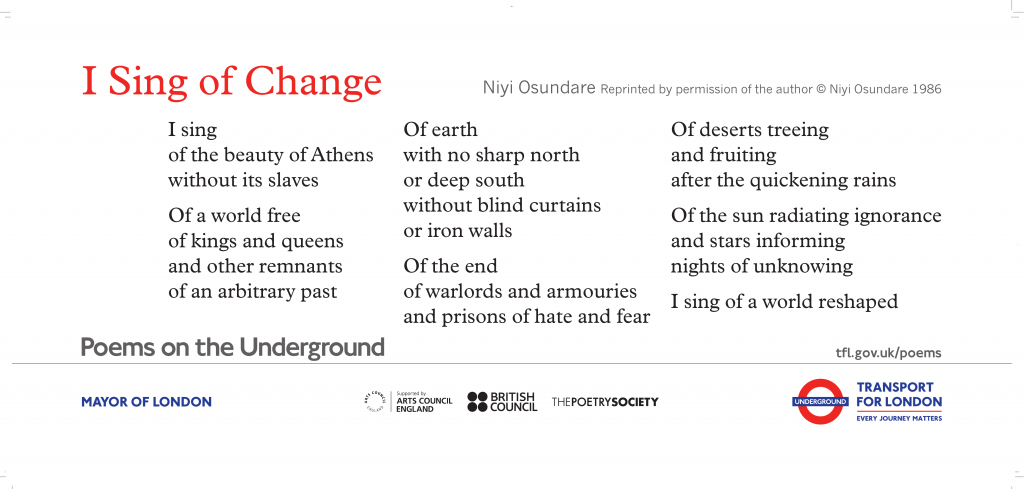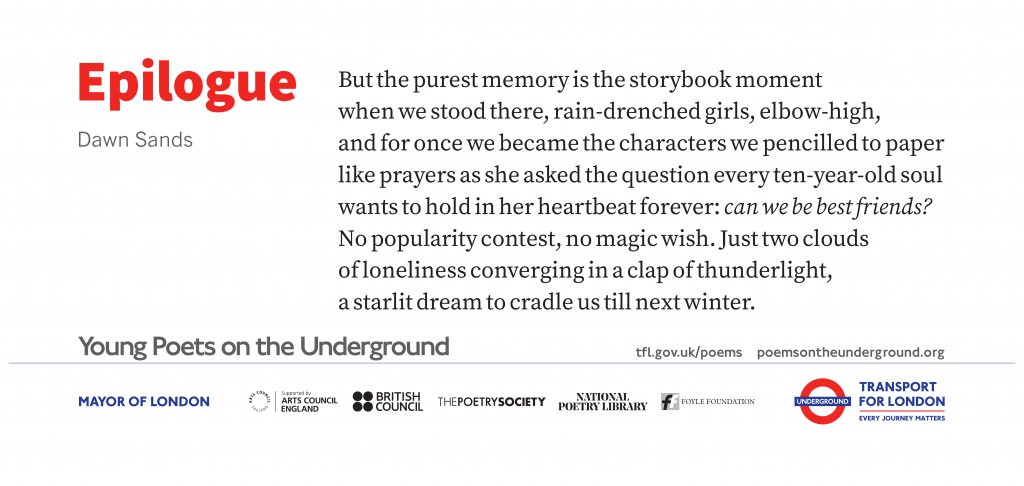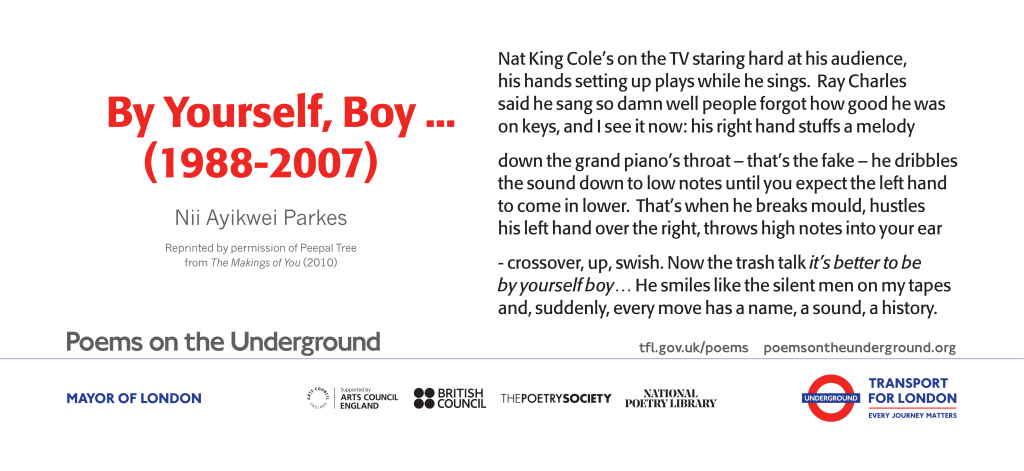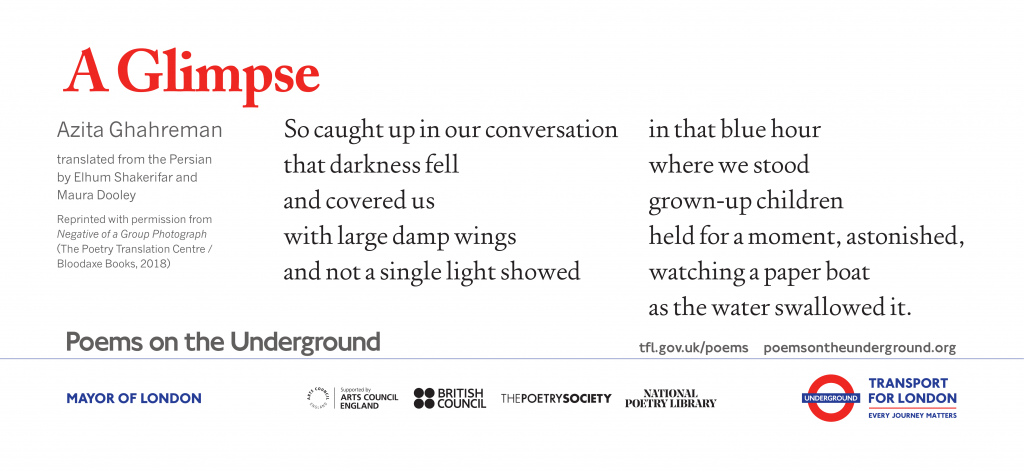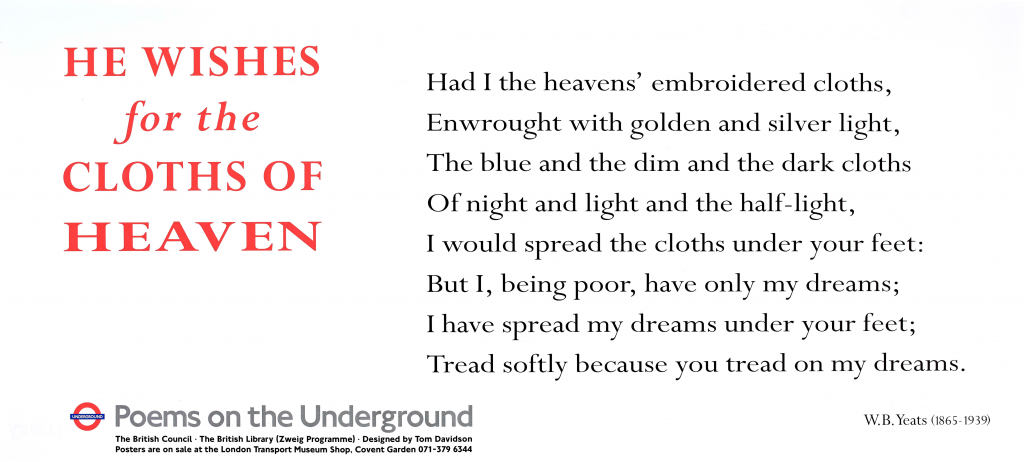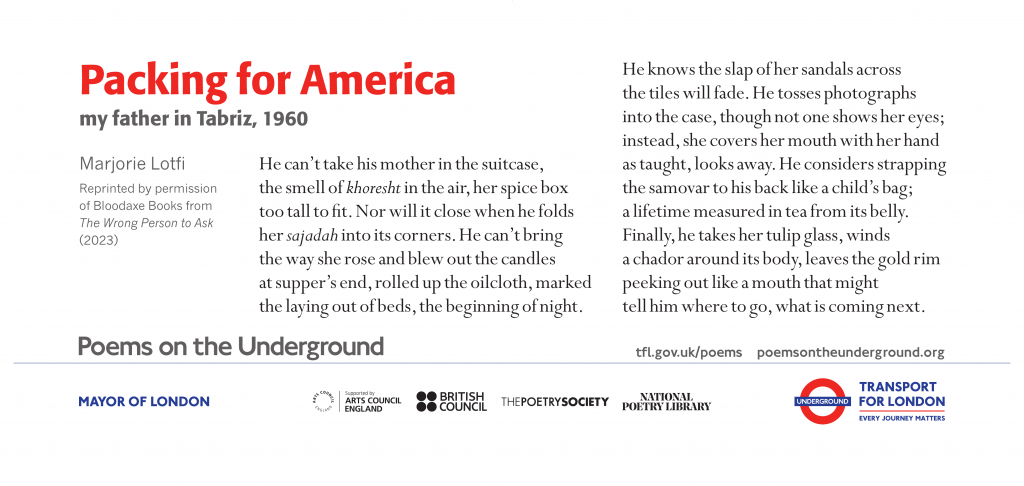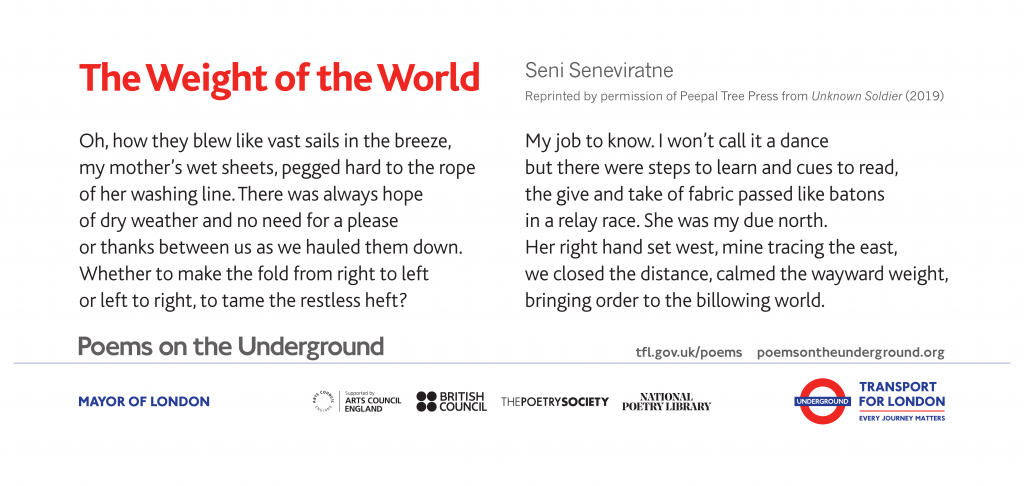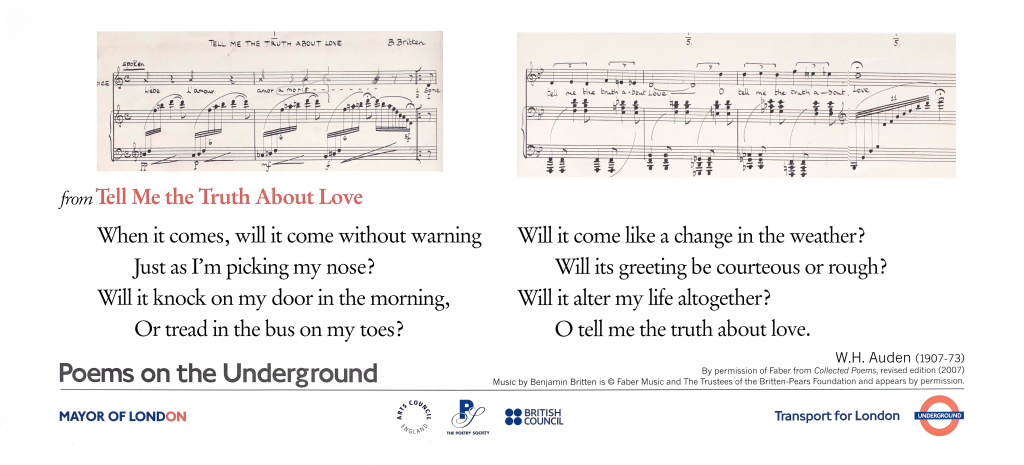From Ecclesiastes 1. iii-vii, The King James Bible read by Nick Makoha
Western wind when wilt thou blow, Anon read by Gerard Benson
What Lips my Lips Have Kissed by Edna St Vincent Millay read by Fleur Adcock
I Sing of Change read by Niyi Osundare
Upwards by Raymond Antrobus with Evelyn Glennie
Fleur Adcock RIP
Dei Miracole read by Lemn Sissay
The Uncertainty of the Poet read by Wendy Cope
If I Could Tell You by W.H. Auden read by Cicely Herbert
Living by Denise Levertov read by Ruth Fainlight
Everything Changes read by Cicely Herbert
The Loch Ness Monster’s Song by Edwin Morgan read by Gerard Benson
Harmonica by Michael Longley read by Ian Duhig
Sumer is Icumen in read by Nii Ayikwei Parkes
Listen to By Yourself, Boy read by Nii Ayikwei Parkes
Listen to Hour read by Carol Ann Duffy
Listen to We Refugees read by Nii Ayikwei Parkes
Listen to A Glimpse read in Persian by Azita Ghahreman
Listen to A Glimpse read by Maura Dooley
Listen to The Railway Children read by Seamus Heaney
Listen to Still Life with Sea Pinks and High Tide read by Maura Dooley
Listen to Carving read by Imtiaz Dharker
Listen to Sometimes by Sheenagh Pugh read by George Szirtes
Listen to Paisley read by Jo Clement
Listen to Sonnet 29 read by James Berry
Poem of the Week April 13th
The Creel by Kathleen Jamie read by John Glenday
Poem of the Week April 6th
Listen to Valerie Bloom reading from The Song of Solomon
Poem of the Week March 30th
Poem of the Week March 23rd
Listen to Ian Duhig reading Bridled Vows
Poem of the Week: March 16th
Listen to Maura Dooley reading He Wishes for the Cloths of Heaven
Poem of the Week: March 9th
Listen to Marjorie Lotfi reading Packing for America
Poem of the Week: March 2nd
Poem of the Week: February 24th
Listen to Seni Seneviratne reading The Weight of the World
Poem of the Week: February 17th
Poem of the Week: February 10th
Poem of the Week : February 3rd
Poem of the Week: January 27th
Poem of the Week January 20th
Poem of the Week January 13th
Poem of the Week January 6th





